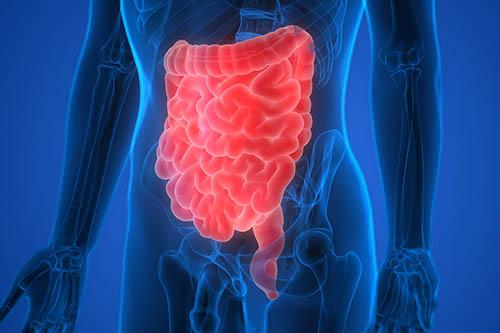
Any manner of early postoperative diet delivered into the gastrointestinal tract (GIT) following colorectal surgery will help stimulate gut motility, leading to an earlier return of bowel function and a shorter length of hospital stay (LOS), according to a systematic review and meta-analysis.
“By providing a simple, realistic recommendation, likelihood of implementation is higher, and the clinical benefits are relevant and meaningful to both the healthcare professional and the patient,” the researchers said.
A systematic search was carried out in the databases of Embase, Medline, Cinahl, Web of Science and PubMed for randomized controlled trials investigating the effectiveness of a diet on gut motility after colorectal surgeries. Outcomes included LOS, mortality, postoperative ileus, nausea and vomiting.
Of the 756 potential studies identified, only 10 trials reporting on 1,237 patients met the inclusion criteria. Evidence showed that early feeding reduced time (days) to first flatus (mean difference [MD], –0.64, 95 percent CI, –0.84 to –0.44) and bowel movements (MD, –0.64, –1.01 to –0.26) when compared to traditional postoperative fasting. [Eur J Clin Nutr 2019;73:1331-1342]
Relative to the progression of fluids to solid foods, introducing solids did not have an effect on time (days) to first flatus (MD, 0.13, –1.99 to 1.74) or bowel movement (MD, 0.20, –0.50 to 0.98).
Furthermore, complete vs hypocaloric nutrition showed no effect on time to first flatus (MD, –0.60, –1.66 to 0.46) or bowel movement (MD, –0.20, –1.59 to 1.19), while coffee and diet compared to water and diet resulted in a significantly decreased time (days) to first bowel movement (MD, –0.60, –0.97 to –0.19) but no effect on time to first flatus (MD, –0.20, –0.57 to 0.09).
“These results provide clinicians with reassurance that simple strategies such as drinking water or eating restricted diets are beneficial for the patient,” the researchers said. “While they may not be as effective as providing more complete nutrition or using gut stimulating agents such as caffeine, they are still more effective than traditional postoperative fasting.” [Trials 2016;17:186; Clin Nutr 2006;25:224-244]
Such strategies, though simple, could help generate best practices in a clinical setting that struggles to implement evidence-based practice due to cultural and historical barriers, they added. [Qual Saf Health Care 2004;13(Suppl 2):ii16-21; J Int Soc Qual Health Care 2003;15:111-118]
One such barrier to early feeding is fear of patient mortality from feeding complications. This review included two trials that reported mortalities in the intervention arm. However, these deaths were not cause by early feeding. [Br J Surg 2007;94:555-561; Int J Colorectal Dis 2011;26:609-616]
“Mortality is a common fear when feeding into the GIT after colorectal surgery,” the researchers said. “To address this concern and enable implementation of early feeding, mortality needs to be captured in all future studies to identify actual risk and overcome barriers of fear.” [Clin Nutr 2002;21:59-65]
The best way to evaluate small differences in mortality from aspiration is through large database analyses of enhanced recovery rather than smaller randomized controlled trials, they added.